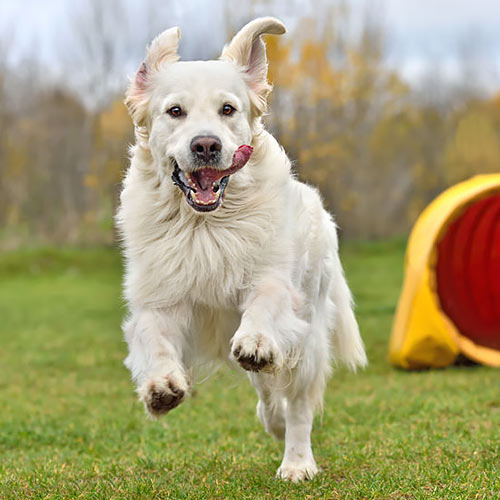In the midst of the coronavirus hysteria, the question has been asked thousands of times…can my dog get COVID-19?

The quick answer is, at this present time there is no evidence that dogs can be infected with the virus. Furthermore, at the time of this writing, there have been no cases of COVID-19 in dogs in the US. This is also the case in the caldron of Italy – no reports of dogs with the virus.
Fear-mongers in the media shed light on two incidents in Hong Kong where two dogs (whose owners tested positive for COVID-19) tested positive for COVID-19. One tested “weakly positive,” meaning that from a virologist’s perspective, it is not a strong case for COVID-19 in pets. Authorities suggest it was a human-to-dog transmission and not dog-to-human. Furthermore, the dogs showed so symptoms, which suggests the virus (contracted from the human) was in the dogs’ nostrils but the dog did not contract the disease.
Recent tests in the US on thousands of dogs/cats have shown no positive results. Experts tend to agree that IF it is possible for pets to contract COVID-19, it must be extremely rare.
It is best to understand that coronaviruses are a large family of viruses. Dogs can get canine coronavirus (CCoV, of which there is a vaccine) but this is not the same as COVID-19.
According the Center for Disease Control and Prevention, there is currently no evidence that dogs can spread COVID-19. The same is the case with imported animals or animal products. Furthermore, the CDC has not received any reports of pets or other animals becoming sick with COVID-19.
Experts say that it is technically possible for dogs to transmit the disease, not because the dog is sick but because an infected human touched the dog and another human touched the dog in the exact spot. Technically, it’s not the dog that is the form of transmission but simply touching a spot touched by an infected human, say, like touching a doorknob or gas-pump handle. Some are suggesting personal hygiene after petting a dog (like washing your hands) just like you would after touching one of these other items.
According to the American
Veterinary Medical Association, petting a dog’s fur is a low risk. One spokesperson from the AVMA said, “We’re
not overly concerned about people contracting COVID-19 through contact with
dogs and cats.”
She goes on to explain the science behind that statement: “The virus survives best on smooth surfaces,
such as countertops and doorknobs,” and “Porous materials, such as pet fur, tend to
absorb and trap pathogens, making it harder to contract them through touch.”
Doggie face masks have popped up across the internet. Truth is, face masks will not stop the virus. Besides, it could make breathing more difficult for the dog.
There is no need to surrender your dog. The current hysteria can cause people to overreact which, in turn, can flood shelters with dogs that people would otherwise not surrender. Keep calm, pet your dog, utilize personal hygiene, and we’ll get through this.

